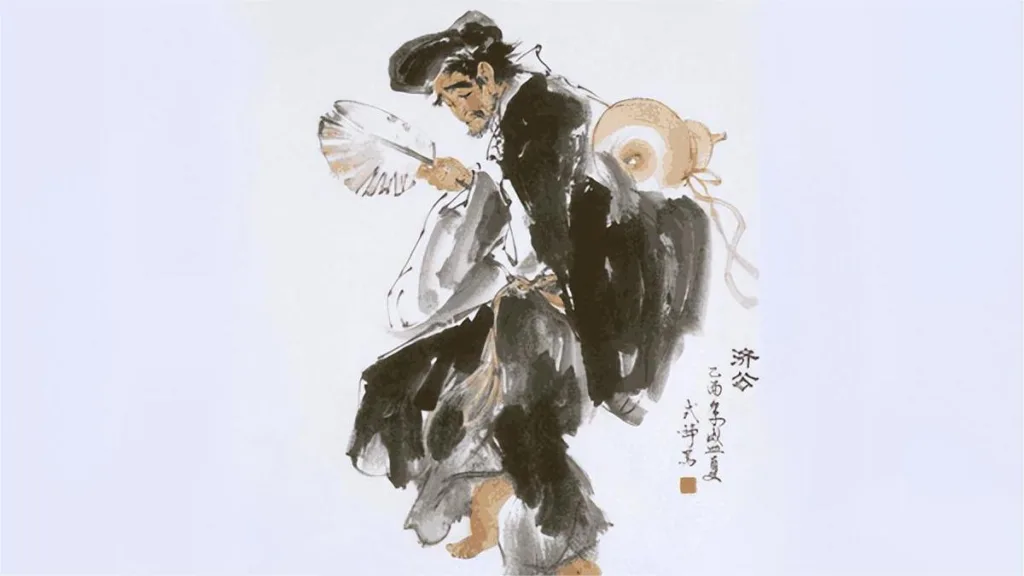Монах Цзи Гун - легендарная личность династии Сун


Ji Gong (济公) (1130 or 1148–1209), also known as Li Xiuyuan in secular life and Daoji in Buddhist monastic life, hailed from Yongning Village, Tiantai County (now Tiantai County, Zhejiang Province), in the area of Taizhou, China. He was a renowned monk during the Southern Song Dynasty, revered by later generations as the “Living Buddha Ji Gong.”
His ancestral lineage traced back to Li Zunxu, who served as the son-in-law of Emperor Taizong of the Song Dynasty and as the military governor of Zhenguojun. The Li family had a longstanding tradition of Buddhism. Ji Gong’s parents, Li Maochun and Wang, resided in Yongning Village outside the northern gate of Tiantai. Li Maochun, nearing his forties and without a child, devoutly prayed to the Buddha and eventually Ji Gong was born, named Xiuyuan by the abbot of Guoqing Temple, establishing a deep connection with Buddhism from then on.
Despite being a distant descendant of Li Wenhe, a magistrate of Linhai, Ji Gong did not inherit any of the indulgent habits associated with aristocratic upbringing. In his youth, he studied at the Rui Xia Cave on the north side of Chicheng Mountain, where he was influenced by both Taoist and Buddhist teachings. After the demise of his parents, he first studied under Master Fakong at Guoqing Temple, later becoming a disciple of the eminent monk Xiatang Huiyuan, who served as the abbot of Guoqing Temple. Under his guidance, Ji Gong received full ordination, adopting the monastic name Daoji and inheriting his master’s lineage. He then visited Zhiyuan Temple under Daoqing and Guanyin Temple under Daojing before settling in Lingyin Temple in Hangzhou, and later in Jingci Temple.
Ji Gong, known for his tattered hat, fan, and shoes, clad in ragged robes, disregarded conventional monastic rules, indulged in meat and alcohol, and appeared eccentric, bordering on madness. However, beneath this unconventional exterior lay a deeply learned monk, renowned for his acts of benevolence and accumulated merits. He was recognized as the 50th patriarch of Chan Buddhism and the 6th patriarch of the Yangqi School. Ji Gong authored the “Recorded Sayings of Juanfeng” in 10 volumes and composed numerous poems, most of which are preserved in the “Annals of Jingci Temple” and “Tianshan Sound of Sanskrit.”
Aside from his spiritual pursuits, Ji Gong was also knowledgeable in traditional Chinese medicine, successfully treating numerous complex ailments for the common folk. He had a penchant for standing up against injustice, correcting wrongs, and saving lives. Legends and stories about Ji Gong began circulating during the Southern Song Dynasty. Initially, tales of the extraordinary child Li Xiuyuan and later the miraculous deeds of the enlightened monk Daoji spread orally among the Chinese populace. These stories were further enriched through oral storytelling performances by itinerant storytellers, gradually evolving into rich narratives. Among them, stories like “Fei Lai Peak,” “Ancient Well Transporting Wood,” and “Mocking the Qin Prime Minister’s Mansion” became particularly popular. By the late Ming and early Qing dynasties, a comprehensive account of Ji Gong’s legendary deeds emerged in the form of “The Biography of Ji Gong.”